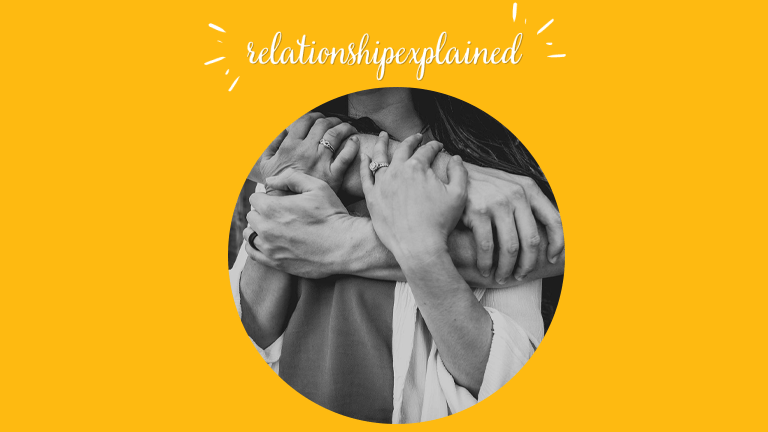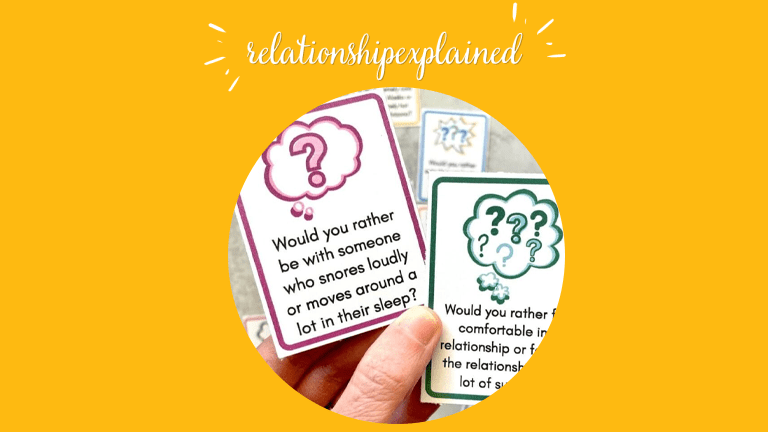Security in a Relationship
Wondering what the secret ingredient to a secure and flourishing relationship is? Security is the cornerstone, fostering trust, honesty, and unwavering commitment between partners. It's that comforting assurance allowing you to bare your soul to your significant other, free from the fear of judgment or rejection. Diving into the essence of security within a relationship, […]
Wondering what the secret ingredient to a secure and flourishing relationship is?
Security is the cornerstone, fostering trust, honesty, and unwavering commitment between partners. It's that comforting assurance allowing you to bare your soul to your significant other, free from the fear of judgment or rejection.
Diving into the essence of security within a relationship, we uncover its pivotal role in cultivating a nurturing and resilient bond. It's about feeling safe, cherished, and appreciated, ensuring a steadfast confidence in your partner's love, especially through the rollercoaster of life's challenges.
- What does it take to forge such a stronghold of security?
- How can open and honest communication act as the bedrock for trust?
- What common pitfalls might jeopardize this sense of security?
Let's dive in
Key Takeaways
- Security is the foundation of trust, honesty, and commitment in a relationship.
- Communication plays a crucial role in building and maintaining security in a relationship.
- Challenges to security can arise from internal and external factors, but there are ways to overcome them and build a more secure relationship.
Understanding Security in a Relationship
In any relationship, security is an essential aspect that contributes to the overall well-being of the partners involved. When you feel secure in a relationship, it means that you can trust your partner, have a strong connection, and feel committed to the relationship. In this section, we will explore the meaning of security in a relationship and the signs of a secure relationship.
Defining a Secure Relationship
A secure relationship is one where you feel safe, loved, and respected by your partner. It is a relationship where you can be yourself without fear of judgment or rejection. Trust is a crucial component of a secure relationship. When you trust your partner, you feel confident that they will not betray or hurt you intentionally. A secure relationship also involves a deep emotional connection that allows you to communicate openly and honestly with your partner. This connection fosters a sense of intimacy that brings you closer together.
Signs of a Secure Relationship
There are several signs that indicate you are in a secure relationship. These signs include:
- Consistency: Your partner consistently shows up for you, and you can rely on them to be there when you need them.
- Commitment: Your partner is committed to the relationship, and you both work together to build a future together.
- Stability: Your relationship is stable, and you can weather any storms that come your way.
- Trust: You trust your partner, and they trust you. You both feel confident in each other's love and commitment.
- Love: You both love each other deeply, and you show it through your actions and words.
In conclusion, a secure relationship is one where you feel safe, loved, and respected by your partner. It involves trust, a deep emotional connection, and a commitment to the relationship. When you are in a secure relationship, you feel confident in your partner's love and commitment, and you can be yourself without fear of judgment or rejection.
The Role of Communication
Effective communication is essential for maintaining a secure and healthy relationship. Communication is not just about talking; it involves active listening, understanding, and responding. It is a two-way process that requires both partners to be open and honest with each other. Communication helps to build trust, which is the foundation of a secure relationship.
Importance of Honesty
Honesty is crucial in any relationship. Being truthful and transparent builds trust and helps to avoid misunderstandings. Dishonesty, on the other hand, can lead to mistrust, suspicion, and even resentment. It is important to be truthful with your partner, even if the truth may be difficult to hear. This helps to establish a culture of honesty in the relationship, which can lead to a more secure and fulfilling partnership.
Nonverbal Communication
Nonverbal communication also plays a vital role in a secure relationship. Body language, tone of voice, and facial expressions can convey a lot of information about how you are feeling. It is important to be aware of your nonverbal cues and to pay attention to your partner's nonverbal communication. This can help you to better understand each other's emotions and to avoid miscommunication.
In addition to verbal and nonverbal communication, follow-through is also essential. If you make a promise, it is important to keep it. This demonstrates reliability and helps to build trust. Conversely, failing to follow through on promises can lead to disappointment and mistrust.
In conclusion, communication is a critical component of a secure relationship. Honesty, nonverbal communication, and follow-through are all essential elements of effective communication. By being open and honest with each other, paying attention to nonverbal cues, and following through on promises, you can build a strong, secure, and fulfilling partnership.
Challenges to Security
Maintaining security in a relationship can be challenging. Insecurity in a relationship can be caused by various factors such as fear, anxiety, conflict, resentment, anger, pain, criticism, and stonewalling. In this section, we will explore some of the challenges to security in a relationship.
Insecurity in a Relationship
Insecurity in a relationship can arise when one partner feels neglected or unappreciated. This can lead to feelings of doubt, mistrust, and jealousy. Insecurity can also be caused by past experiences such as infidelity or abandonment. It is important to address these issues and work towards building trust and security in the relationship.
Fear and Anxiety
Fear and anxiety can also contribute to insecurity in a relationship. Fear of rejection or abandonment can cause one partner to become clingy or possessive, which can lead to conflict and resentment. Anxiety can also cause one partner to become distant or withdrawn, which can leave the other partner feeling neglected or unimportant.
Conflict and Resentment
Conflict and resentment can also erode the security in a relationship. When partners are unable to resolve conflicts or communicate effectively, it can lead to feelings of frustration and anger. This can create a cycle of negativity that can be difficult to break. Resentment can also build up over time and cause partners to become emotionally distant.
To maintain security in a relationship, it is important to address these challenges head-on. Communication, trust, and mutual respect are key components of a healthy and secure relationship. By working together to overcome these challenges, you can build a strong and lasting bond with your partner.
Building a Secure Relationship
In order to build a secure relationship, there are certain key elements that must be present. These include trust, setting boundaries, and navigating conflict. By establishing these elements, you can create a strong foundation for your relationship.
Establishing Trust
Trust is the foundation of any successful relationship. Without trust, there can be no security. To establish trust in your relationship, it is important to be open and honest with your partner. Be truthful about your thoughts and feelings, and avoid keeping secrets. Trust is built over time, so it is important to be patient and consistent in your actions.
Setting Boundaries
Setting boundaries is another important element of building a secure relationship. Boundaries help to define the limits of what is acceptable in your relationship. This can include physical boundaries, emotional boundaries, and personal boundaries. It is important to communicate your boundaries clearly and to respect your partner's boundaries as well.
Navigating Conflict
Conflict is inevitable in any relationship, but it is how you handle conflict that determines the strength of your relationship. When conflict arises, it is important to approach it with a calm and rational mindset. Avoid blaming or attacking your partner, and instead focus on finding a solution that works for both of you. Compromise is key in resolving conflicts.
By establishing trust, setting boundaries, and navigating conflict, you can build a secure relationship that is built to last. Remember to provide reassurance and validation to your partner, and to approach confrontation with acceptance and understanding. With these elements in place, you can create a relationship that is strong, secure, and fulfilling.
Professional Help and Support
When it comes to security in a relationship, seeking professional help and support can be a crucial step towards maintaining a healthy and safe partnership. There are various types of professionals who can assist you in this regard. Here are some of the most common ones:
Role of a Clinical Psychologist
A clinical psychologist is a mental health professional who specializes in diagnosing and treating mental health disorders. They can provide a range of services, including therapy, counseling, and psychological testing. If you or your partner are struggling with mental health issues that are affecting your relationship, a clinical psychologist can help you work through these challenges.
Therapy and Mental Health Support
Therapy is another option for couples who are looking for professional help and support. There are many different types of therapy, including cognitive-behavioral therapy, couples therapy, and family therapy. A therapist can help you and your partner communicate more effectively, work through conflicts, and develop strategies for maintaining a healthy relationship.
It's important to note that seeking professional help and support is not a sign of weakness. Rather, it's a proactive step towards ensuring the long-term health and safety of your relationship. If you or your partner are struggling with mental health issues or relationship challenges, don't hesitate to reach out for professional assistance.
Frequently Asked Questions
What are the top relationship needs for a healthy and secure partnership?
A healthy and secure partnership requires trust, communication, respect, and support. These elements are essential for building a strong foundation that can withstand the ups and downs of life. Trust is the cornerstone of any relationship, and it is essential to feel that you can rely on your partner. Communication is also critical, as it allows you to share your thoughts, feelings, and concerns with your partner. Respect is another key component, as it ensures that you treat each other with kindness and consideration. Finally, support is essential, as it allows you to be there for each other through thick and thin.
How can financial security impact a relationship?
Financial security can have a significant impact on a relationship. Money is one of the most common sources of conflict in relationships, and it can lead to stress, anxiety, and even divorce. It is important to have open and honest conversations about finances, including your goals, expectations, and spending habits. You should also work together to create a budget and stick to it. By being transparent about your finances and working together to achieve your goals, you can build a strong and secure financial foundation for your relationship.
What actions can a man take to make his partner feel secure in the relationship?
A man can take several actions to make his partner feel secure in the relationship. First, he should be attentive and responsive to her needs and concerns. This means listening actively, offering support and encouragement, and being there for her when she needs him. He should also be honest and transparent in his communication, and avoid keeping secrets or hiding things from her. Finally, he should make an effort to show his love and affection regularly, through small gestures like holding hands, giving compliments, or doing thoughtful things.
How important is emotional stability and security in a relationship?
Emotional stability and security are essential for a healthy and secure relationship. When you feel emotionally secure, you are more likely to trust your partner, communicate openly and honestly, and be supportive and caring. Emotional instability, on the other hand, can lead to conflict, mistrust, and even abuse. It is important to work on your own emotional health and well-being, as well as your partner's, to ensure that you both feel secure and supported in the relationship.
What are some examples of emotional security in a relationship?
Emotional security can take many forms in a relationship. It can mean feeling comfortable and safe sharing your thoughts and feelings with your partner, knowing that they will listen and respond with kindness and understanding. It can also mean feeling confident in your partner's love and commitment, and trusting that they will be there for you through thick and thin. Emotional security can also mean feeling valued and respected, and knowing that your partner will support you in your goals and aspirations.
What steps can be taken to establish and maintain a sense of security in a relationship?
To establish and maintain a sense of security in a relationship, it is important to prioritize communication, trust, and respect. This means being open and honest with each other, listening actively, and being supportive and caring. It also means being transparent about your needs, expectations, and boundaries, and working together to find solutions to any problems that arise. Finally, it means making an effort to show your love and affection regularly, through small gestures like holding hands, giving compliments, or doing thoughtful things. By prioritizing these elements, you can build a strong and secure foundation for your relationship.












